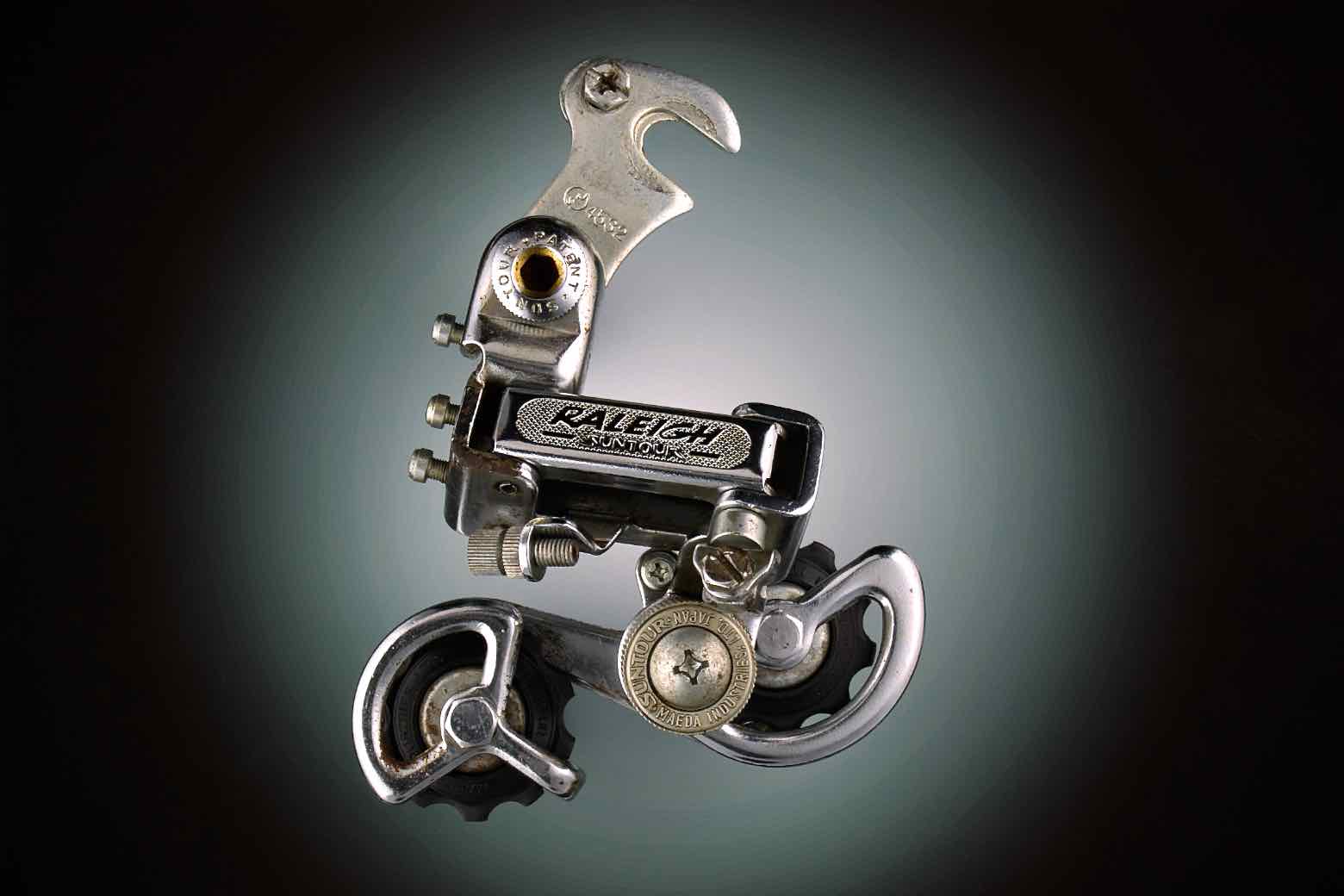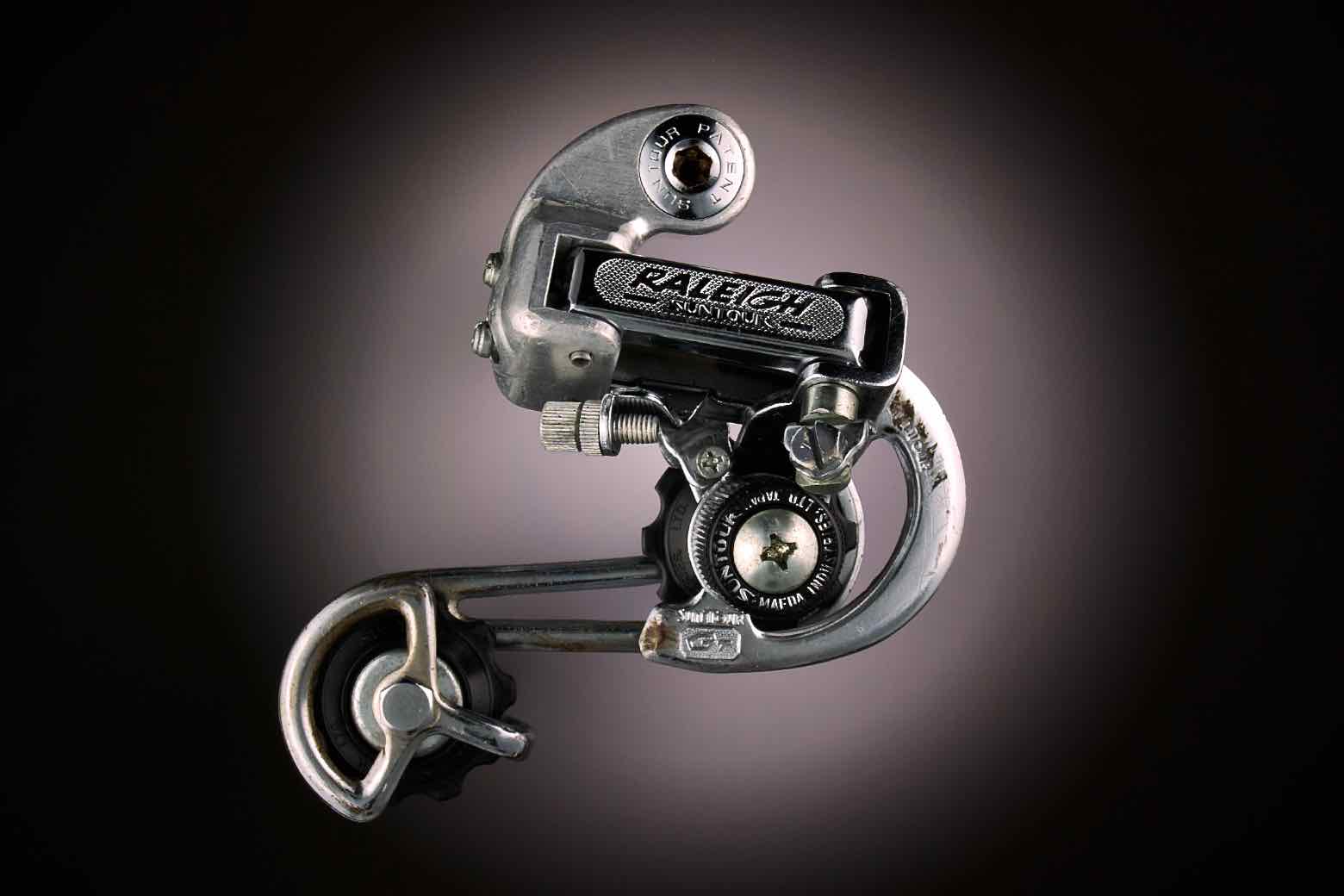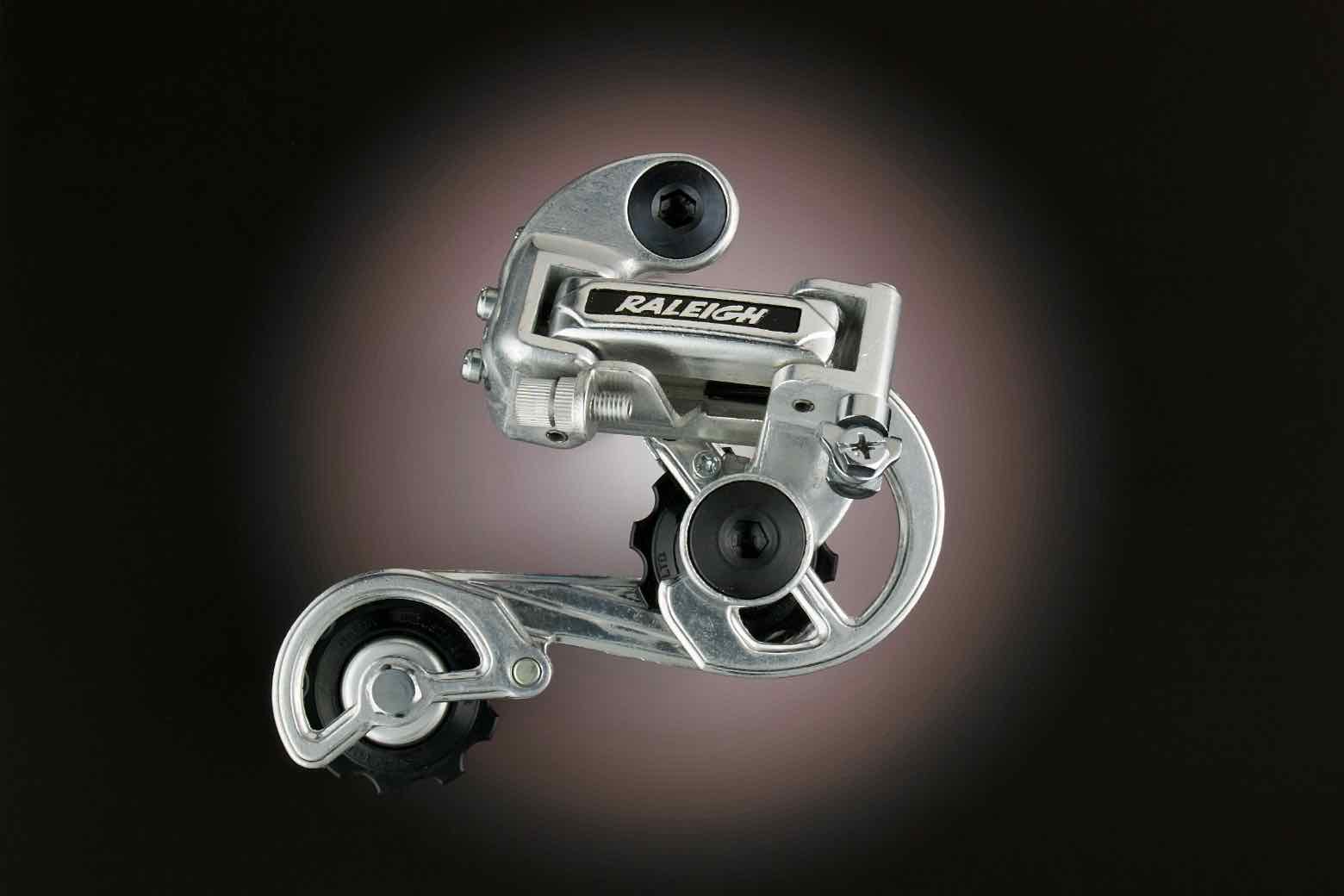


DISRAELI GEARS
The Raleigh Cycle Company was formed in 1888, in Nottingham. The legend is that Frank Bowden formed the company by buying a bicycle workshop in Raleigh Street, Nottingham. Frank Bowden had been given 6 months to live by his doctor, and attributed his miraculous return to good health to the benefits of riding a bicycle that he had purchased from this workshop.
By 1896, Raleigh was a public company and operated a brand-spanking-new factory that it claimed was the largest bicycle factory in the world. The next key act was the 1902 purchase of Sturmey-Archer, the manufacturer of hub-gears. Over the next 70 years Raleigh would go on to become a global company, and would hoover up a large number of British bicycle brands, and at one point claimed that their Nottingham factory was the largest factory of any kind in the world. In various different periods after the Second world war Raleigh is reckoned to have accounted for 80% of the bicycles sold in Britain. In Karel Reisz’s gritty kitchen sink drama ‘Saturday Night and Sunday Morning’ (1960) Albert Finney plays a rebellious factory worker, ground down during the week by the tedium of his job and the tyranny of his supervisor, but partying hard at the weekends with predictable consequences for the characters played by Shirley Anne Field and Rachel Roberts. If you watch closely you will note that Albert Finney’s gruelling job is machining bottom bracket axles (16GCC’s perhaps?) in the Raleigh factory. Alan Sillitoe, who wrote ‘Saturday Night and Sunday Morning’, worked in the Raleigh factory before bursting onto the scene as an ‘angry young man’.
In the way of great British Companies, Raleigh’s decline has been long and painful. Raleigh has had its marketing successes (the Chopper and Grifter spring to mind) but notably failed to pick up quickly on other major trends - the Moulton in the 1960’s, the ‘quality’ ten speed in the 1970’s and, most crucially of all, the mountain bike. Raleigh often claims that it was there and ready at the start of the mountain bike boom, but products like the Raleigh Bomber, with its appalling child-centric specification, and its alluring decals depicting an air raid, simply did not cut it.
Raleigh became part of Tube Investments in 1960, was sold to Derby International in 1987, and has had any number of re-structurings and partial or complete changes of ownership since. Today Raleigh is still based in Nottingham, but designs bicycles that are produced in the Far East, and are capable but (to my mind) unexciting.
In terms of derailleurs, Raleigh never developed any that I am aware of (however, I think it may have continued the production of the Resilion Crimson Star after acquiring control of Phillips in 1960). Until the late 1970’s Raleigh was also seen as being ambivalent about derailleurs, partly because it had the Sturmey-Archer hub-gear business to protect, and partly because ‘reliability’ was a Raleigh watchword, and it regarded derailleurs as flimsy and unreliable (and possibly as dangerously foreign in the way of garlic and flimsy upper lips).
When Raleigh finally accepted that the derailleur was the way to go it had the muscle to get derailleur manufacturers to brand up their products as ‘Raleigh’.
see also Joop Zoetemelk - 1985 postcard
see also Joop Zoetemelk - 1985 postcard
see also The Engineer 1902 - The Cycle Shows
see also The Engineer 1902 - The Cycle Shows
see also TCF Rev Mens - 07/1905 Concours de Bicyclettes de Voyage (part I)
see also TCF Rev Mens - 07/1905 Concours de Bicyclettes de Voyage (part I)
see also TCF Rev Mens - 09/1905 Concours de Bicyclettes de Voyage (part II)
see also TCF Rev Mens - 09/1905 Concours de Bicyclettes de Voyage (part II)
see also TCF Rev Mens - 10/1905 Concours de Bicyclettes de Voyage (part III)
see also TCF Rev Mens - 10/1905 Concours de Bicyclettes de Voyage (part III)
see also TCF Rev Mens - 11/1905 Concours de Bicyclettes de Voyage (part IV)
see also TCF Rev Mens - 11/1905 Concours de Bicyclettes de Voyage (part IV)
see also TCF Rev Mens - 01/1907 La Bicyclette de Voyage au Salon
see also TCF Rev Mens - 01/1907 La Bicyclette de Voyage au Salon
Raleigh - Care For Your Cycle 1957?
Raleigh - Care For Your Cycle 1957?
Raleigh Owners Handbook 1971?
Raleigh Owners Handbook 1971?
Raleigh Owner’s Manual - Derailleur Bicycles 1972
Raleigh Owner’s Manual - Derailleur Bicycles 1972
Raleigh Bicycle Guide - Derailleur 1982?
Raleigh Bicycle Guide - Derailleur 1982?